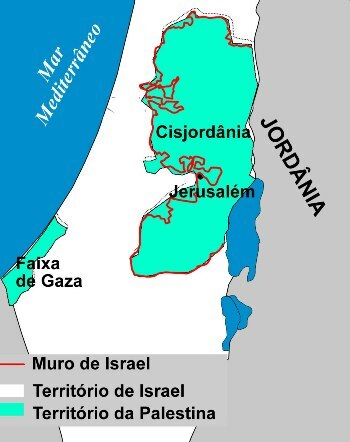O Brazilian National Anthem Day is celebrated on April 13th. The choice of this date is due to the fact that, on the night of April 13, 1831, the music of our hymn was played for the first time in the Theater São Pedro de Alcântara, In Rio de Janeiro city. Until April 1831, the anthem considered “national” was the Independence Anthem, composed by the emperor himself D. Peter I.
Read too: November 19 – Flag Day
Creation of the National Anthem
The person responsible for creating the music of the anthem, that is, the instrumental part, was the conductor Francisco Manuel da Silva(1795-1865), co-founder of the Imperial Academy of Music and the National Institute of Music. The anthem music would have been composed shortly after the events that marked the 7th of April 1831. On that day, the then emperor D. Peter I abdicated the throne in favor of your son, D. Pedro de Alcântara – future D. Pedro II. THE abdication of D. Peter it occurred due to internal and external political pressures to the country. Many Brazilians, including politicians, artists, journalists and intellectuals, opposed to D. Pedro I and the Portuguese supporters of the emperor, thrilled with his abdication. Francisco Manuel was one of them and composed the anthem
to welcome the future to come with the new emperor, this one, yes, born in Brazil.As is known, the son of D. Pedro I, Pedro de Alcântara, born in Rio de Janeiro, was still a child when he abdicated. It was therefore necessary to compose a government regime that would prepare the ground for the new emperor. This regime became known as Regency, or Governing Period. There was, on the part of Brazilians such as conductor Francisco Manuel, great expectations regarding this new phase of Brazilian politics.
The first lyrics for the song of the anthem, written by Ovídio Saraiva, reflected this context well, as can be seen in the stanzas below:
a prudent rulership
a brazilian monarch
promised us lucky
The most flattering future.
And you Brazilian maidens
Arriving from mothers to the state
Give Brazil such good children
As your mothers have given.
However, the partnership between Silva's music and Saraiva's lyrics did not become something solid and lasting. at the height of second reign, for example, it was frequent for the National Anthem to be performed without the accompaniment of the lyrics.
See too: November 15 – Republic Proclamation Day

Reform of the Anthem with Alberto Nepomuceno and Osório Duque-Estrada
When did the Proclamation of the Republic, in November 1889, the republicans wanted the composition of a new anthem to celebrate the new political regime. For this purpose, a contest was held. However, the new selected song did not like it at the time. president Deodoro da Fonseca, who opted for the permanence of Francisco Manuel da Silva's music. The anthem remained for some time without new lyrics, until, in 1906, a member of the National Institute of Music, called Alberto Nepomuceno, proposed to the President of the Republic Alfonso Pena a reform of the Brazilian National Anthem. This reform would change some elements of the instrumental part and would also add new lyrics.
As soon as the reform was authorized, a new contest was held to choose the new lyrics. The winner of the contest was the teacher and poet Osorio Duque-Road (1870-1927). Duque-Estrada's lyrics were mostly made up of longer lines than Ovídio Saraiva's, following the model appreciated at the time and widely used by poetsparnassians, that is, the ten-syllable verse with poetic markings on the sixth and tenth stressed syllables. This verse is known as heroic decasyllable and it fits well to the instrumental part reformed by Nepomuceno.
By Me. Cláudio Fernandes
Source: Brazil School - https://brasilescola.uol.com.br/datas-comemorativas/dia-do-hino-nacional-brasileiro.htm


